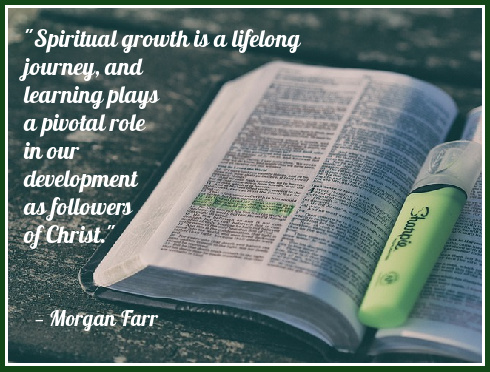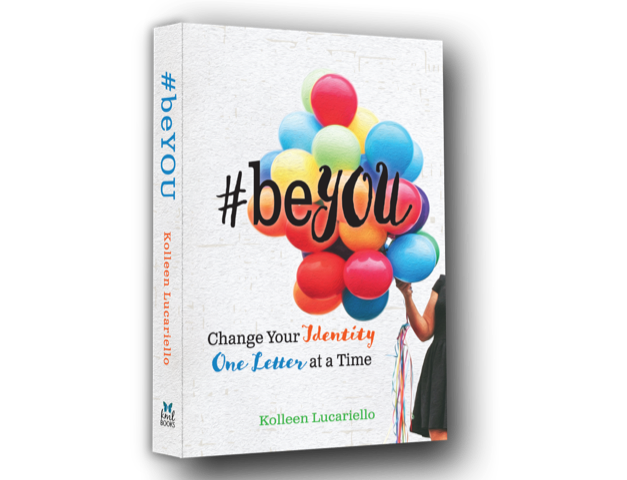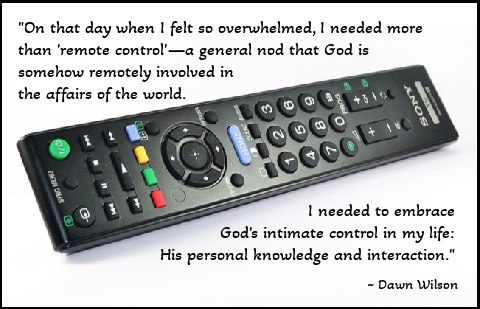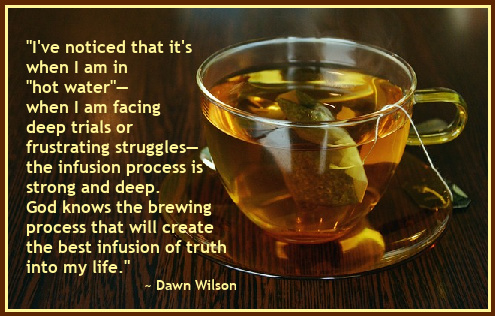Upgrade Your Ministry: Continue Learning
Morgan Farr is a wise and practical teacher, distilling the truth of God's Word and applying it to everyday living. In this Ministry UPGRADE, she encourages us to keep on learning, for our benefit but also for the sake of better ministry.
"Learning shouldn’t end in a classroom," Morgan says. "It should be a forever part of the Christian woman’s life."

I (Dawn) agree with Morgan. We should always be lifelong learners, and nowhere is this more important than in our walk with God and ministry for Him.
Morgan continues . . .
In today's fast-paced world, it's easy to let the pursuit of knowledge take a back seat. However, for Christian women, the call to learning should be a continual and integral part of our lives.
Our commitment to growing in wisdom, knowledge, and faith should stay in the forefront of our minds.
Let’s explore why every Christian woman should continue learning and what she should do with that knowledge.
1. Get Wisdom
Even though history has not always been kind to women’s education, we see in scripture that learning and growing is a crucial part of life.
Proverbs 4:7 states,
"The beginning of wisdom is this: Get wisdom. Though it cost all you have, get understanding."
This verse reminds us that wisdom and understanding are precious treasures worth pursuing at any cost. This means that wisdom and understanding are not one-time acquisitions but ongoing pursuits.
Learning isn't just about acquiring academic knowledge; it's also about deepening our spiritual understanding.
Ephesians 4:23-24 urges us to:
"be made new in the attitude of your minds"
and to "put on the new self, created to be like God in true righteousness and holiness."
Spiritual growth is a lifelong journey, and learning plays a pivotal role in our development as followers of Christ.
Consider joining a Bible study group, attending seminars, or dedicating time to daily reading and reflection.
2. Give to Others
Learning isn't just for personal enrichment; it's also a means to serve others effectively.
Proverbs 31:26 (NIV) describes a woman who
"speaks with wisdom, and faithful instruction is on her tongue."
When we continually upgrade our knowledge and wisdom, we become valuable sources of guidance and support for our families, friends, and communities.
God has given us unique talents and gifts, and we can use these gifts to bless others.
By investing in our growth, we can better equip ourselves to serve those around us.
This might look like using your skills as a bookkeeper to help a college student build a budget, or using your wisdom as a grandmother to minister in a children’s church. God gave you unique skills and experiences. Use them to give knowledge to others.
Let me share a real-life example.
A YouTube star, Rob Kenney, created the channel “Dad, How Do I?” where he took his real-life experience and started making videos to help people walk through things they may not have learned from their parents.
I accidentally stumbled across his videos two years ago when I was trying to figure out how to replace a toilet seat. I was struggling and super frustrated, so I googled, “How do I replace a toilet seat?”
His video gave me the help I needed.
Now, that may not seem like a big deal, but when you realize that I had four kids ages six and under and my soldier husband was away—let me just say that there were a lot of tears when I finally fixed this silly thing that was creating so much frustration in my home.
Kenney's skills and willingness to share them helped me and my family, even though we have never met!
3. Grapple with Relevance
It is easy to feel irrelevant after hitting age twenty-nine. But that doesn’t have to be the case.
Just because you don’t know the latest TikTok dance doesn’t mean that you don’t have knowledge to share.
Find what you are good at and let your church or community leadership know you want to give in this area.
I guarantee you there is a place where you are needed!
For example, being able to sew my husband’s name tape and patches on his Army uniform has saved us a fair amount of money during his military career.
- I could ask my chapel about putting up a flyer letting other military wives know I have this skill.
- I can either offer it to them as a free/low-cost service, or I can teach them how to do it themselves.
We are told in Titus chapter two how older people should mentor younger people, yet this doesn’t happen often in church.
I see a divide between the older generations and the ones coming behind them because we don’t know how to communicate our willingness to learn and teach.
As Christian women, our commitment to learning should be an ongoing journey guided by the Word of God. Through this, we enrich our lives and fulfill God's purpose for us, becoming the women He designed us to be.
So, upgrade your commitment to learning today and let it be a continual part of your life for God's glory
What skill can you share with your community?
 Morgan Farr is a succulent-cultivating, book nerd, aspiring author. She spends her days homeschooling her four young children and training her working dogs. As an Army wife, Morgan has learned to lean heavily on Jesus as she walks out military life. She is the Director fo Publishing at Planting Roots, a minitry for military women and wives. You can connect with Morgan on all major social media channels using her handle: morgandfarr.
Morgan Farr is a succulent-cultivating, book nerd, aspiring author. She spends her days homeschooling her four young children and training her working dogs. As an Army wife, Morgan has learned to lean heavily on Jesus as she walks out military life. She is the Director fo Publishing at Planting Roots, a minitry for military women and wives. You can connect with Morgan on all major social media channels using her handle: morgandfarr.
Graphic adapted, courtesy of Pexels at Pixabay.
 Post a Comment → Posted on
Post a Comment → Posted on  Tuesday, September 26, 2023 at 9:33AM
Tuesday, September 26, 2023 at 9:33AM  Christians entoring younger people,
Christians entoring younger people,  Lifelong learning,
Lifelong learning,  Ministry,
Ministry,  Morgan Farr,
Morgan Farr,  Sharing Gifts and Skills,
Sharing Gifts and Skills,  Upgrade with Dawn,
Upgrade with Dawn,  Wisdom Upgrade Your Life
Wisdom Upgrade Your Life  Learning,
Learning,  Ministry,
Ministry,  Spiritual Growth,
Spiritual Growth,  Wisdom
Wisdom 











